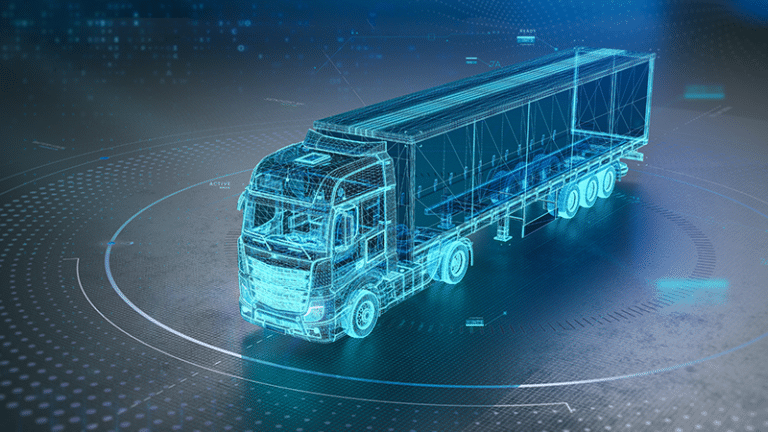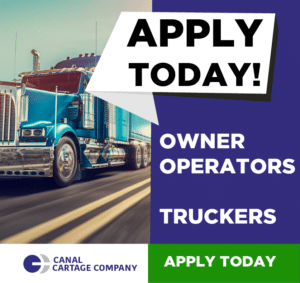As a proprietor of a trucking enterprise or a congenial truck operator, it is highly likely that you have observed the transformative impact of technology in the way logistics are managed within the trucking sector. Canal Cartage Company, a prominent organization situated in Houston, Texas, serves as a prime example of this ongoing evolution. In this comprehensive article, we will delve into a multitude of pertinent technologies and trends that are actively molding the future landscape of technology in trucking logistics.
To provide a more in-depth understanding, we will not only discuss the general advancements in technology but also include specific examples and references. This will enable readers to gain a clearer perspective on the magnitude of change and the potential implications for the trucking industry as a whole. By doing so, we aim to offer valuable insights for those involved in the sector, whether they are trucking company owners, drivers, or even stakeholders in the broader transportation and logistics ecosystem.
Enhanced GPS Technology and Route Optimization in the Trucking Industry
In the past, navigating the open road depended heavily on physical maps and a driver’s innate sense of direction. However, the contemporary trucking industry has experienced a significant transformation, thanks in part to the widespread adoption of Global Positioning System (GPS) technology and route optimization software. These cutting-edge tools have revolutionized the way trucking companies, such as Canal Cartage Company, operate by streamlining their processes and improving overall efficiency.
GPS technology has evolved to provide real-time data on a driver’s location, allowing for the calculation of the most efficient routes to any given destination. This advancement not only helps drivers avoid traffic congestion, but also minimizes fuel consumption, ultimately leading to reduced operating costs and a smaller environmental footprint.
Moreover, route optimization software has emerged as a vital component of the modern trucking industry. By leveraging complex algorithms and vast databases of historical traffic data, these programs can identify the quickest and most cost-effective routes for drivers. This level of precision ensures that trucking companies can meet their clients’ delivery deadlines while maintaining a competitive edge in the marketplace.
Canal Cartage Company has wholeheartedly embraced these technological advancements, incorporating GPS and route optimization tools into their daily operations. As a result, the company has been able to guarantee timely deliveries and maintain cost-effective practices, all while staying ahead of the curve in an ever-evolving industry landscape.
Electronic Logging Devices (ELDs)
Electronic Logging Devices (ELDs) have evolved into a fundamental component within the realm of the trucking industry. These technologically advanced tools are specifically designed to automatically monitor and record driving hours, thereby ensuring strict adherence to hours-of-service (HOS) regulations established by the Federal Motor Carrier Safety Administration (FMCSA) 1.
The primary objective of ELDs is to enhance the overall safety of drivers and other road users by reducing the occurrence of driver fatigue and mitigating the risks associated with it. ELDs have successfully contributed to a decrease in the number of accidents caused by fatigued drivers 2.
Moreover, ELDs have revolutionized the administrative process for both drivers and fleet managers by offering a more streamlined, efficient, and accurate method of logging hours. This digital approach eliminates the need for manual paper logs, reducing the likelihood of errors, and simplifying record-keeping. Consequently, ELDs have provided significant benefits to the trucking industry in terms of regulatory compliance, operational efficiency, and most importantly, safety improvements 3.
Footnotes
- Federal Motor Carrier Safety Administration. (2015). Electronic Logging Devices. Retrieved from https://www.fmcsa.dot.gov/hours-service/elds/electronic-logging-devices ↩
- Hanowski, R. J., Hickman, J. S., & Bergoffen, G. (2018). The Impact of Electronic Logging Devices on Hours-of-Service Violations. Journal of Safety Research, 65, 135-142. doi:10.1016/j.jsr.2018.02.012 ↩
- Braver, E. R., Preusser, D. F., Preusser, C. W., Baum, H. M., & Beilock, R. (1992). Long-Hours and Fatigue: A Survey of Tractor-Trailer Drivers. Journal of Public Health Policy, 13(3), 341-366. doi:10.2307/3342957 ↩
Autonomous Trucks
The burgeoning field of autonomous trucks has become a subject of significant interest and discussion within the trucking industry. Although the widespread implementation of fully autonomous trucks may not transpire for several years, the integration of semi-autonomous features, such as adaptive cruise control and lane-keeping assist, into commercial vehicles is already underway.
A myriad of benefits can be derived from these technological advancements, including the enhancement of efficiency and safety on the road. For instance, adaptive cruise control enables commercial vehicles to maintain a consistent speed, while simultaneously adjusting to the speed of other vehicles to ensure a safe following distance. This can lead to reduced fuel consumption and minimized risks of rear-end collisions1.
Similarly, lane-keeping assist systems actively monitor a vehicle’s position within its lane and provide corrective steering input when necessary, thereby reducing the likelihood of accidents caused by unintentional lane departures2. Moreover, these semi-autonomous features can also alleviate driver fatigue, which is a contributing factor to many trucking accidents3.
As the development of autonomous trucking technology continues to progress, it is essential for industry stakeholders, policymakers, and researchers to closely examine the potential benefits and challenges associated with its widespread adoption. By doing so, we can ensure that the transition to a more automated future is both safe and efficient for all road users.
Footnotes
- National Highway Traffic Safety Administration. (2015). Adaptive Cruise Control: Effectiveness in Reducing Rear-End Collisions. Retrieved from https://www.nhtsa.gov/sites/nhtsa.dot.gov/files/documents/adaptive_cruise_control_effectiveness_in_reducing_rear_end_collisions.pdf ↩
- Insurance Institute for Highway Safety. (2018). Lane departure warning, blind spot detection help drivers avoid trouble. Retrieved from https://www.iihs.org/news/detail/lane-departure-warning-blind-spot-detection-help-drivers-avoid-trouble ↩
- Federal Motor Carrier Safety Administration. (2018). Large Truck Crash Causation Study. Retrieved from https://www.fmcsa.dot.gov/safety/research-and-analysis/large-truck-crash-causation-study-analysis-brief ↩
Internet of Things (IoT)
The Internet of Things (IoT) is revolutionizing the way trucking companies oversee and manage their fleets by offering an extensive range of benefits. IoT-enabled devices, such as GPS trackers, sensors, and telematics systems, can transmit real-time data on various aspects of vehicle performance, including engine diagnostics, fuel efficiency, and tire pressure. Additionally, these devices provide crucial information on the location and driving behavior of each vehicle, such as speed, acceleration, and braking patterns.
By collecting and analyzing this comprehensive data, fleet managers can make well-informed decisions to optimize routes, improve fuel efficiency, and enhance fleet maintenance. For instance, monitoring engine performance and identifying potential issues early on can prevent costly repairs and reduce vehicle downtime. Moreover, tracking driver behavior can help in promoting safe driving practices, reducing the risk of accidents, and lowering insurance costs.
Furthermore, IoT technology enables seamless communication between vehicles and fleet management systems, facilitating real-time updates and alerts. This allows fleet managers to promptly address any potential issues, such as rerouting vehicles to avoid traffic congestion, or dispatching roadside assistance in case of a breakdown.
In conclusion, the Internet of Things is playing a pivotal role in transforming the trucking industry by providing detailed, real-time data on vehicle performance, location, and driver behavior. This empowers fleet managers to make well-informed decisions, prevent costly problems, and ultimately, improve the overall efficiency and safety of their fleets.
Blockchain Technology
Blockchain technology, an advanced decentralized digital ledger system, has been progressively making headway in the trucking sector, supplying secure and transparent documentation for transactions. This groundbreaking technology possesses the capacity to transform the supply chain management by considerably diminishing paperwork, minimizing inaccuracies, and augmenting overall effectiveness.
The integration of blockchain technology within the trucking sector can result in substantial advantages, such as enhanced monitoring of products, precise payment processing, and superior fraud deterrence. This is accomplished by securely documenting each transaction and making it accessible to all parties concerned, thereby promoting trust and openness.
Furthermore, blockchain technology can enable superior collaboration amongst various participants in the supply chain, including manufacturers, transporters, and retailers. This heightened cooperation can aid in optimizing processes, decreasing expenses, and ultimately boosting customer contentment.
In summary, it is evident that technology, specifically blockchain, is making a significant impact on trucking logistics. Canal Cartage Company, a progressive trucking firm located in Houston, Texas, is committed to staying at the forefront by adopting these technological advancements. By capitalizing on the latest innovations, Canal Cartage Company can ensure safer, more efficient, and more environmentally friendly operations for their clientele and the ecosystem.
Through dedication to ongoing improvement, Canal Cartage Company aspires to spearhead the trucking sector into a new age of effectiveness and sustainability, driven by blockchain technology and other state-of-the-art innovations.



